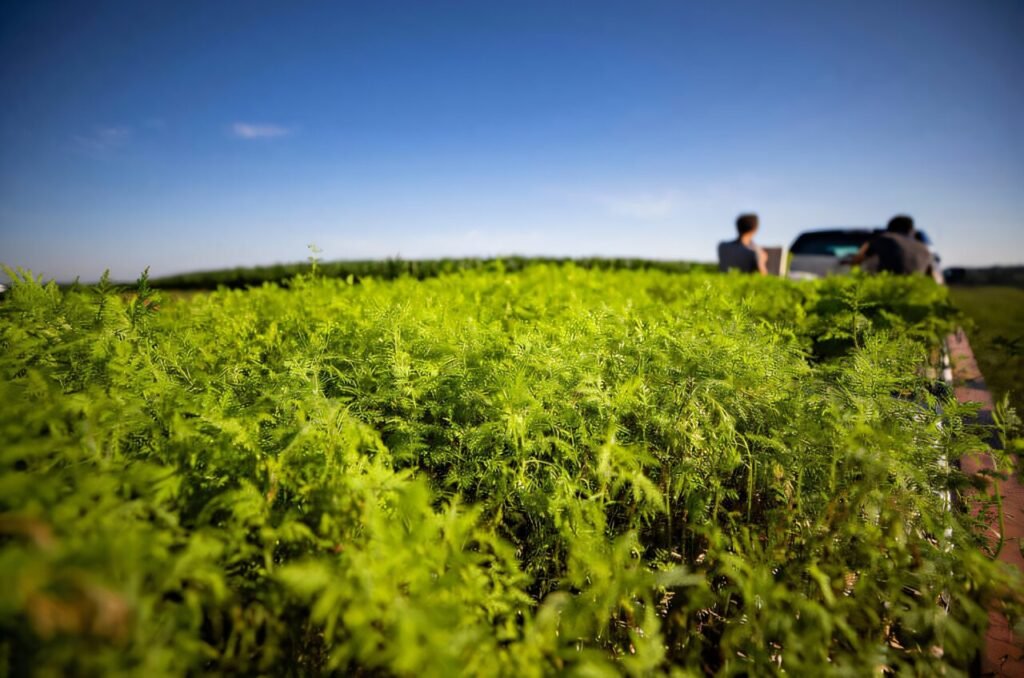University of Kentucky Markey Cancer Center researchers have made significant progress in the fight against ovarian cancer with a unique coffee-based approach to maintenance therapy. At the recent Society of Gynecologic Oncology annual meeting in Seattle (SGO 2025), promising results from an early-stage clinical trial were presented, showcasing the potential of ArtemiCafe Decaf in treating ovarian cancer.
ArtemiCafe Decaf is a decaffeinated coffee product that contains a controlled dose of Artemisia annua, a plant known for its medicinal properties, including antimalarial effects. Recent laboratory studies have also indicated that the plant may have anti-cancer properties, making it a promising candidate for cancer therapy.
The phase 1 trial demonstrated that ArtemiCafe Decaf is safe and well-tolerated by patients at a dose of four cups daily. Further patient follow-up is required to determine the efficacy of this unique approach in treating ovarian cancer. Dr. Frederick Ueland, a gynecologic oncologist at the UK Markey Cancer Center, emphasized the importance of finding a maintenance therapy that could potentially delay or prevent cancer recurrence, which would be a game-changer in ovarian cancer care.
Led by Dr. Jill Kolesar, the study builds upon previous research at the Markey Cancer Center, which showed that artesunate, a compound derived from Artemisia annua, exhibited strong anti-cancer activity against ovarian cancer cells. The ongoing phase 2 clinical trial at Markey is now evaluating ArtemiCafe Decaf for maintenance therapy in prostate cancer patients, further expanding the potential applications of this innovative approach.
ArtemiLife CEO Adam Maust expressed pride in collaborating with the University of Kentucky on this groundbreaking research, highlighting the company’s mission to support scientific advancements while delivering innovative products for daily use. Kentucky’s unique connection to this research is also noteworthy, as it is currently the only state growing substantial amounts of Artemisia annua. The Kentucky Tobacco Research and Development Center at the UK Martin-Gatton College of Agriculture, Food and Environment plays a crucial role in cultivating the plant on Spindletop Farm, which is utilized by researchers at UK and ArtemiLife for their products.
This research not only holds promise for improving cancer treatment but also showcases the collaborative efforts between academia and industry to drive scientific innovation. With ongoing clinical trials and a focus on practical applications, the future looks bright for Artemisia-based therapies in the fight against cancer.


